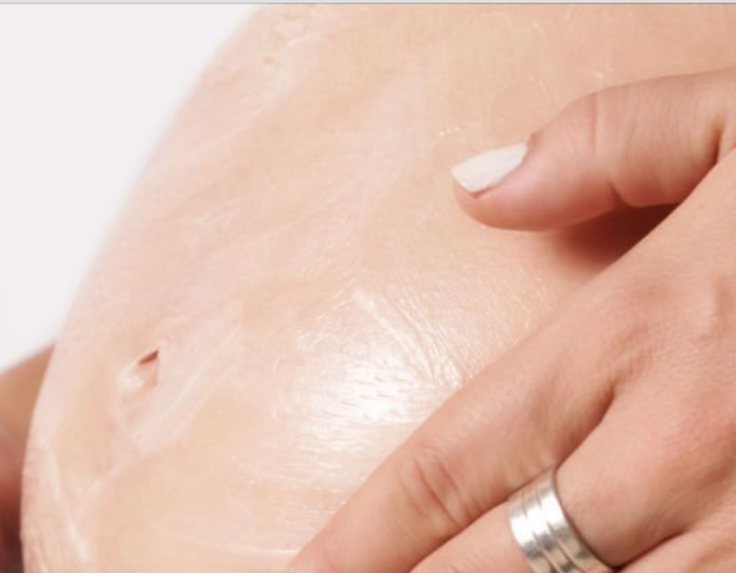Postpartum Care: Healing And Fading Stretch Marks With The Help Of Cream
The journey into motherhood is a transformative experience that brings joy, love, and a profound sense of responsibility. As new mothers embrace the precious moments with their newborns, they often find themselves navigating the postpartum period, a time of physical and emotional recovery. One aspect of postpartum care that many mothers focus on is the healing and fading of stretch marks, a common occurrence as the body adjusts to the changes of pregnancy.
What are stretch marks in Pregnancy?
Stretch marks, medically known as striae gravidarum, are a common dermatological concern that many pregnant women experience as their bodies undergo significant changes during pregnancy. These marks appear as visible streaks or lines on the skin, typically resulting from the skin’s stretching and expanding to accommodate the growing fetus. Here’s a breakdown of the factors contributing to the development of stretch marks during pregnancy:
Rapid Weight Gain: As the baby grows and the body prepares for childbirth, women often experience rapid weight gain. This sudden increase in weight puts significant stress on the skin, leading to the development of stretch marks.
Hormonal Changes: Hormonal fluctuations during pregnancy, particularly increased levels of hormones like cortisol and estrogen, can affect the skin’s elasticity. Reduced collagen production, which is responsible for maintaining skin’s firmness and flexibility, can contribute to the formation of stretch marks.
Genetic Predisposition: A person’s genetic makeup can play a role in determining whether they are more susceptible to developing stretch marks. If a woman’s mother or grandmother had stretch marks during pregnancy, there may be a higher likelihood of experiencing them as well.
Multiple Pregnancies: Women carrying multiple fetuses (twins, triplets, etc.) are at an increased risk of developing stretch marks due to the greater degree of skin stretching.
Stretch marks commonly appear on areas of the body that undergo the most significant stretching, such as the abdomen, breasts, hips, and thighs. Initially, they often have a reddish or purplish hue and may feel slightly raised or itchy. Over time, they tend to fade to a lighter colour and become less noticeable, but they may not disappear entirely.
While stretch marks are a natural part of the pregnancy process for many women, various creams and treatments are available to help minimize their appearance and support skin health during and after pregnancy. It’s essential to embrace these changes as a testament to the incredible journey of bringing new life into the world and to focus on overall well-being during the postpartum period.
The Impact of Pregnancy on the Skin
Pregnancy brings about profound changes in a woman’s body, and the skin undergoes several transformations as it adapts to the demands of gestation. These changes are primarily driven by hormonal fluctuations, increased blood volume, and the physical expansion of the abdomen and breasts. Understanding the impact of pregnancy on the skin helps women navigate these changes with a greater sense of awareness and care. Apart from stretch marks, here are some key ways in which pregnancy affects the skin:
Hyperpigmentation: Many pregnant women experience changes in skin pigmentation, resulting in conditions such as melasma or the “mask of pregnancy.” Melasma causes dark patches to develop on the face, particularly on the forehead, cheeks, and upper lip. Increased levels of melanin, the pigment responsible for skin colour, contribute to these changes.
Linea Nigra: A vertical line known as the linea nigra may appear on the abdomen during pregnancy. This dark line extends from the navel to the pubic bone and is caused by hormonal changes that stimulate increased melanin production.
Acne and Skin Sensitivity: Hormonal fluctuations can trigger changes in oil production, leading to an increase in acne or skin sensitivity. Some women may experience heightened skin reactivity or notice changes in their pre-existing skin conditions during pregnancy.
Spider Veins and Varicose Veins: The increased blood volume during pregnancy, coupled with hormonal changes, can contribute to the development of spider veins (small, red blood vessels) and varicose veins (swollen and twisted veins, often in the legs).
Hair and Nail Changes: Some women may notice changes in hair and nail texture during pregnancy. Hair may become thicker and more lustrous due to hormonal influences, while nails may grow faster or become more brittle.
Glowing Skin: Despite the challenges, many women experience a “pregnancy glow” characterized by radiant and dewy-looking skin. This glow is attributed to increased blood circulation and hormonal changes that enhance skin hydration and luminosity.
Understanding these skin changes can help women better care for their skin during pregnancy. Adopting a skincare routine that addresses specific concerns, staying hydrated, and maintaining a healthy lifestyle contribute to overall skin well-being during this transformative period. Additionally, seeking guidance from healthcare providers and dermatologists can provide tailored advice to address skin concerns during pregnancy.

Role of cream for stretch marks during Pregnancy
The use of creams for stretch marks during pregnancy has become a popular aspect of maternal skincare, providing mothers with a proactive approach to managing the physical changes that accompany gestation. While it’s important to note that not all stretch marks can be completely prevented, the application of specialized creams can potentially aid in minimizing their appearance and supporting skin health. Here’s an exploration of the role of creams for stretch marks during pregnancy:
Promoting Elasticity: High-quality stretch mark creams often contain ingredients designed to enhance skin elasticity. Components such as collagen, elastin, and hyaluronic acid are commonly found in these creams, aiming to maintain the skin’s flexibility and resilience as it undergoes the stretching associated with pregnancy.
Hydration and Moisture: Keeping the skin well-hydrated is crucial during pregnancy to help prevent dryness and itching, common symptoms as the skin expands. Stretch mark creams often include moisturizing agents like shea butter, cocoa butter, or oils such as almond oil and jojoba oil. These ingredients help lock in moisture, easing discomfort and supporting overall skin health.
Reducing Itching and Discomfort: The stretching of the skin can lead to itchiness and discomfort. Creams containing soothing ingredients like aloe vera, chamomile, or calendula can provide relief and alleviate irritation associated with the stretching process.
Minimizing the Appearance of Stretch Marks: While complete prevention of stretch marks may not be possible, certain creams contain ingredients like retinoids, alpha hydroxy acids (AHAs), or vitamin C, known for their potential to reduce the visibility of stretch marks and promoting a more even skin tone.
Safe Ingredients for Pregnancy: Expectant mothers must choose stretch mark creams with ingredients that are considered safe during pregnancy. Creams free from harsh chemicals, parabens, and retinoids are generally recommended. Always consult with a healthcare professional before introducing new skincare products during pregnancy.
Self-Care and Bonding: The application of stretch mark cream can become a cherished self-care routine for expectant mothers. Taking the time to massage the cream onto the belly and other areas prone to stretching can be a moment of self-love and bonding with the growing baby. This ritual can also serve as a mindful practice, allowing mothers to connect with their changing bodies.
While the efficacy of stretch mark creams varies among women, incorporating them into a comprehensive skincare routine, along with a healthy lifestyle, proper hydration, and regular exercise, can contribute to the overall well-being of the skin during pregnancy. Expectant mothers need to consult with their healthcare providers before using any skincare products to ensure that they are safe and suitable for their unique needs and circumstances.
FAQs
- What month of pregnancy do stretch marks appear?
Stretch marks can appear at different times for different women, but they often become more noticeable during the later stages of pregnancy. The majority of women notice stretch marks appearing around the sixth or seventh month of pregnancy when the abdomen undergoes significant stretching to accommodate the growing fetus. However, some women may develop stretch marks earlier, while others may notice them postpartum.
- Is it possible to avoid stretch marks during pregnancy?
While it’s challenging to completely prevent stretch marks during pregnancy, some measures may help minimize their development. Maintaining a healthy weight gain, staying hydrated, and nourishing the skin with moisturizing creams specifically designed for pregnancy can contribute to skin elasticity. Additionally, adopting a balanced diet rich in vitamins and minerals that support skin health, such as vitamin C and zinc, may play a role in minimizing the appearance of stretch marks.
- Do pregnancy stretch marks go away?
While pregnancy stretch marks never completely disappear, they often fade over time. Initially, stretch marks may appear reddish or purplish in colour, but as they mature, they tend to fade to a lighter hue. The texture may also become less noticeable. While there is no guaranteed method to make them disappear entirely, using creams with ingredients that promote skin elasticity and hydration, maintaining a healthy lifestyle, and allowing time for the natural healing process can contribute to minimizing the visibility of pregnancy stretch marks.








































Leave a comment